第8章
Mind, beauty, wealth, nobility, although the children of chance, all have their own value, as skill, learning and virtue all have theirs. Those upon whom nature has heaped her most costly gifts should pity those to whom these gifts have been refused; but, in their character of experts, they may feel their superiority without pride. A beautiful woman would be as foolish to think herself ugly, as an intelligent man to think himself a fool. An exaggerated modesty (a rare fault, to be sure) is a kind of ingratitude towards nature. An honest pride, on the contrary, is the mark of a strong and beautiful soul, revealed by manly features moulded by feeling.
If one's organism is an advantage, and the preeminent advantage, and the source of all others, education is the second. The best made brain would be a total loss without it, just as the best constituted man would be but a common peasant, without knowledge of the ways of the world. But, on the other hand, what would be the use of the most excellent school, without a matrix perfectly open to the entrance and conception of ideas? Il est aussi impossible de donner une seule idée à un homme privé de tous les sens, que de faire un enfant à
une femme à laquelle la nature aurait poussé la distraction jusqu'à oublier de faire une vulve, comme je l'ai vu dans une, qui n'avait ni fente, ni vagin, ni matrice, et qui pour cette raison fut démariée après dix ans de mariage.
But if the brain is at the same time well organized and well educated, it is a fertile soil, well sown, that brings forth a hundredfold what it has received: or (to leave the figures of speech often needed to express what one means, and to add grace to truth itself) the imagination, raised by art to the rare and beautiful dignity of genius, apprehends exactly all the relations of the ideas it has conceived, and takes in easily an astounding number of objects, in order to deduce from them a long chain of consequences, which are again but new relations, produced by a comparison with the first, to which the soul finds a perfect resemblance. Such is, I think, the generation of intelligence. I say ``finds'' as I before gave the epithet ``apparent'' to the likeness of objects, not because I think that our senses are always deceivers, as Father Malebranche has claimed, or that our eyes, naturally a little unsteady, fail to see objects as they are in themselves (though microscopes prove this to us every day) but in order to avoid any dispute with the Pyrrhonians, among whom Bayle is well known.
I say of truth in general what M. de Fontenelle says of certain truths in particular, that we must sacrifice it in order to remain on good terms with society. And it accords with the gentleness of my character, to a void all disputes unless to what conversation [!]. The Cartesians would here in vain make an onset upon me with their innate ideas. I certainly would not give myself a quarter of the trouble that M. Locke took, to attack such chimeras.
In truth, what is the use of writing a ponderous volume to prove a doctrine which became an axiom three thousand years ago?
According to the principles which we have laid down, and which we consider true; he who has the most imagination should be regarded as having the most intelligence or genius, for all these words are synonymous; and again, only by a shameful abuse [of terms] do we think that we are saying different things, when we are merely using different words, different sounds, to which no idea or real distinction is attached.
The finest, greatest or strongest imagination is then the one most suited to the sciences as well as to the arts. I do not pretend to say whether more intellect is necessary to excel in the art of Aristotle or of Descartes than to excel in that of Euripides or of Sophocles, and whether nature has taken more trouble to make Newton than to make Corneille, though I doubt this. But it is certain that imagination alone, differently applied, has produced their diverse triumphs and their immortal glory.
If one is known as having little judgment and much imagination, this means that the imagination has been left too much alone, has, as it were, occupied most of the time in looking at itself in the mirror of its sensations, has not sufficiently formed the habit of examining the sensations themselves attentively. [It means that the imagination] has been more impressed by images than by their truth or the likeness.
Truly, so quick are the responses of the imagination that if attention, that key or mother of the sciences, does not do its part, imagination can do little more than run over and skim its objects.
See that bird on the bough: it seems always ready to fly away. Imagination is like the bird, always carried onward by the turmoil of the blood and the animal spirits. One wave leaves a mark, effaced by the one that follows; the soul pursues it, often in vain: it must expect to regret the loss of that which it has not quickly enough seized and fixed. Thus, imagination, the true image of time, is being ceaselessly destroyed and renewed.
Such is the chaos and the continuous quick succession of our ideas: